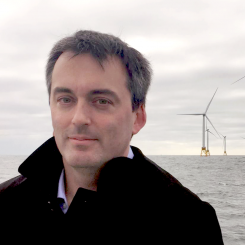October 8, 2020 - 11:00 AM - 12:30 PM Eastern Time (ET)
Towards Carbon Neutrality in Energy and Transportation: The Role of Hydrogen
Event Description:
Hydrogen promises potential solutions to many of the most vexing challenges facing energy and environmental policy-makers as they plan for deep decarbonization scenarios and eventual carbon neutrality in our energy and transportation systems.
In this webinar, organized in collaboration with the MIT Energy Initiative Electric Power Systems Low Carbon Center, three experts will weigh in on the prospects of hydrogen from different backgrounds and regional contexts:
Svetlana Ikonnikova of the Technical University of Munich (TUM) will discuss the potential role of hydrogen in decarbonizing the global transportation sector as well as explore the link between hydrogen and international trade, including whether she expects from the emerging international hydrogen trade to follow the LNG blueprint.
MIT’s Dharik Mallapragada will recap two recent MIT papers, one which evaluates the economics of green hydrogen at industrial-scale from PV-electrolysis coupled with storage, and another, which assesses the least-cost deployment of hydrogen supply chain for serving transportation applications while modeling the interactions with the electric grid for hydrogen production and other energy requirements.
William Nuttall of the Open University in the United Kingdom will then provide us with takeaways from his recent book Fossil Fuel Hydrogen, which explains key technological, economic, and environmental issues concerning hydrogen from fossil sources, including discussion on the use of fossil-sourced hydrogen in fuel cell-powered vehicles.






